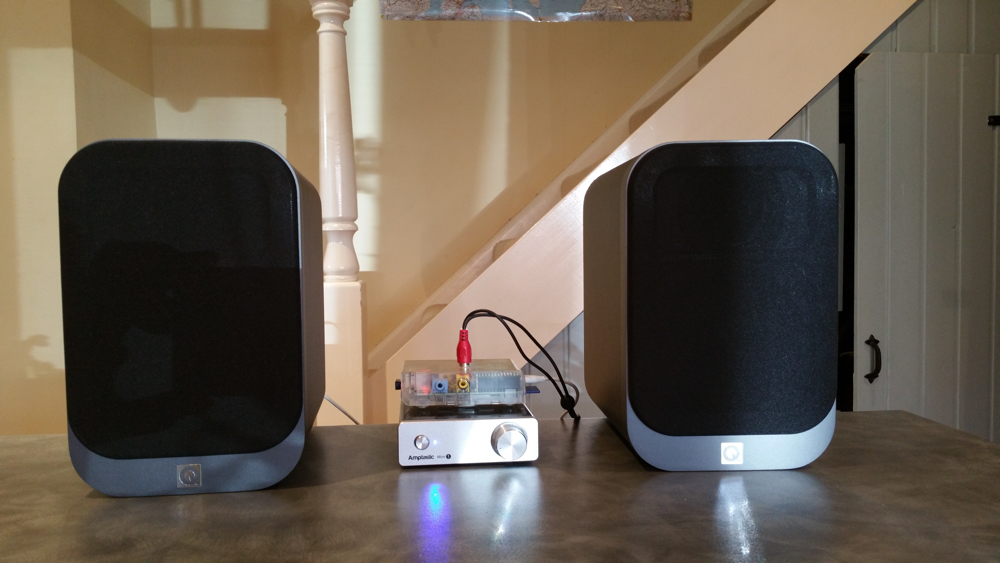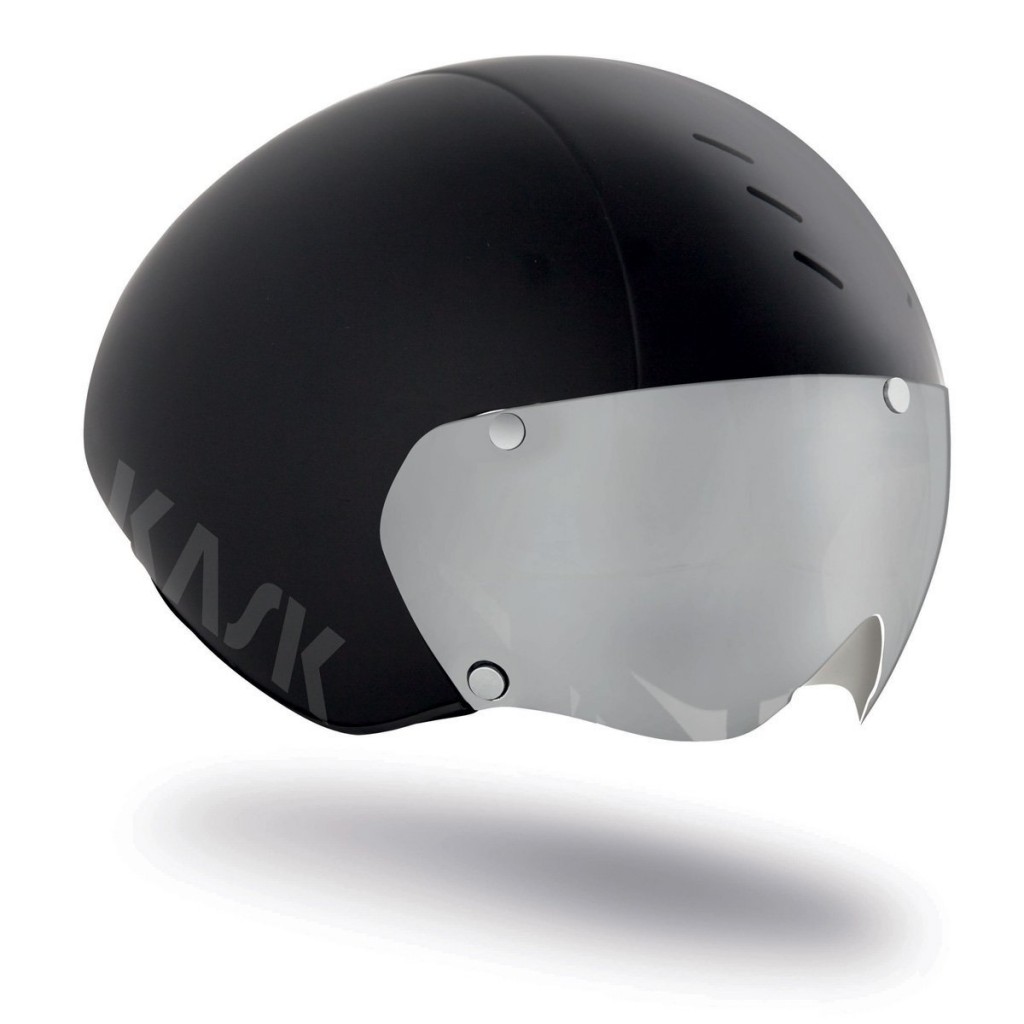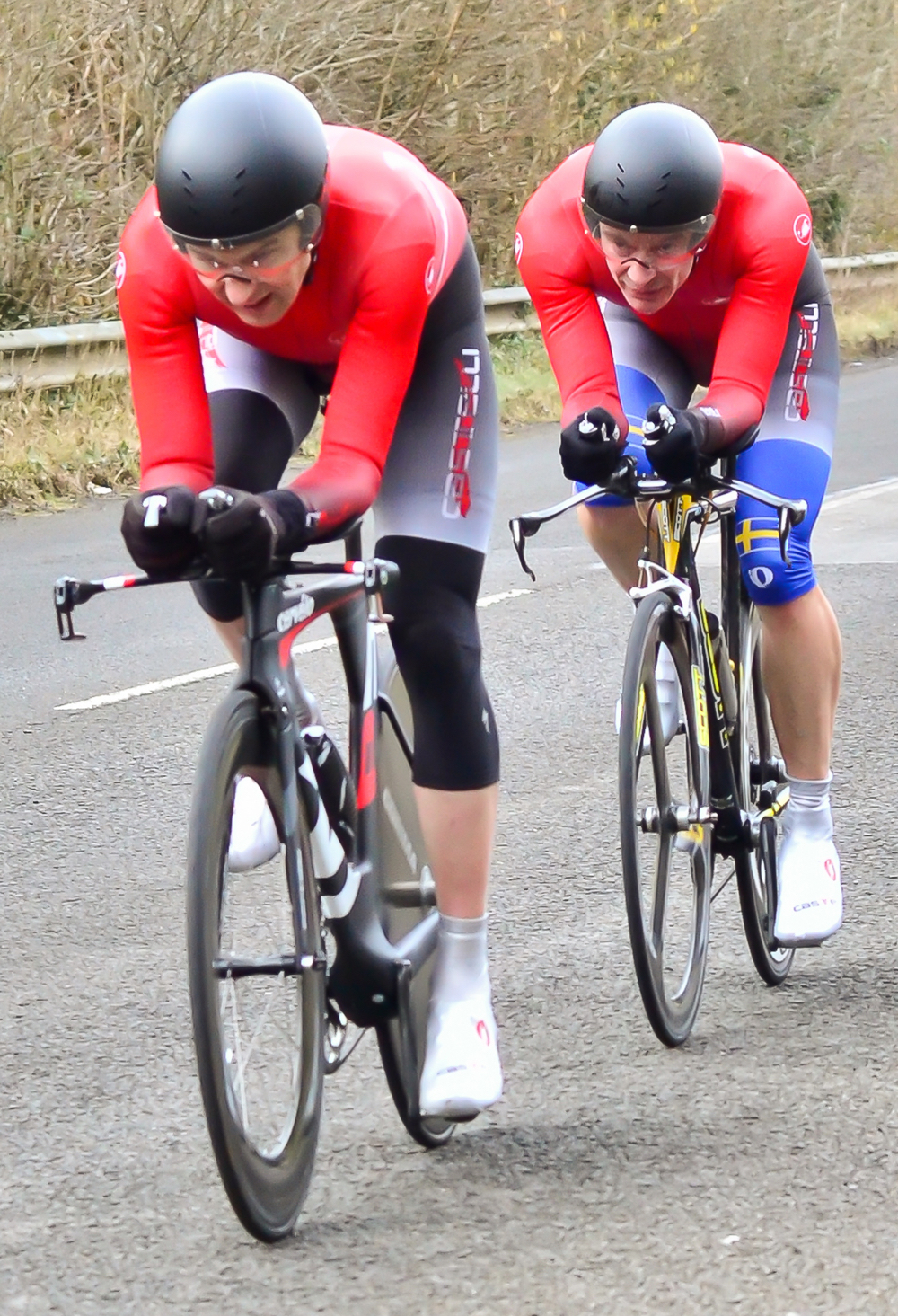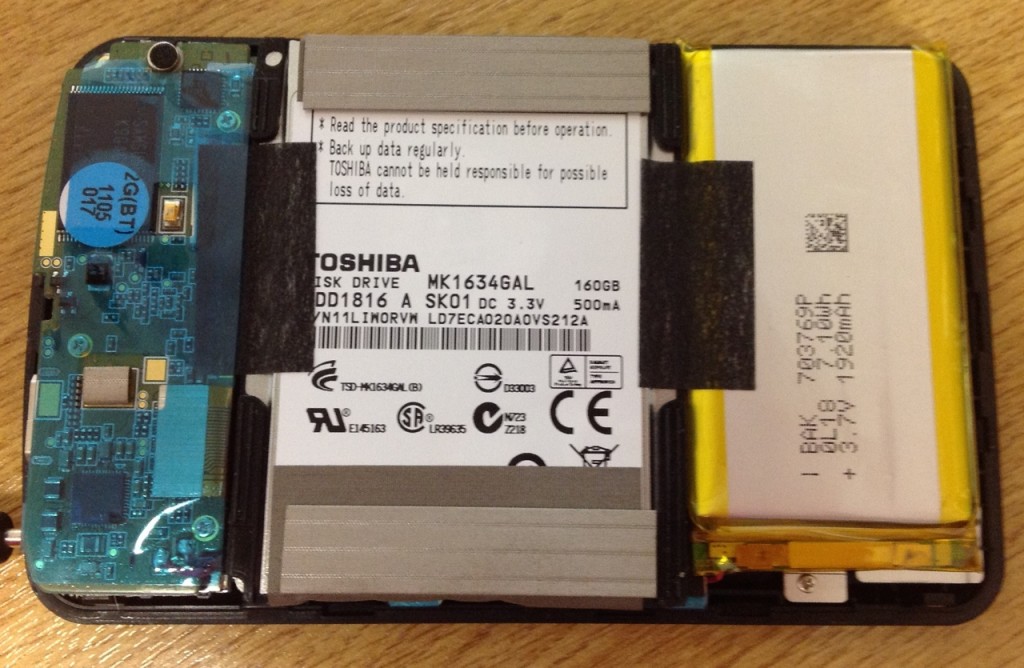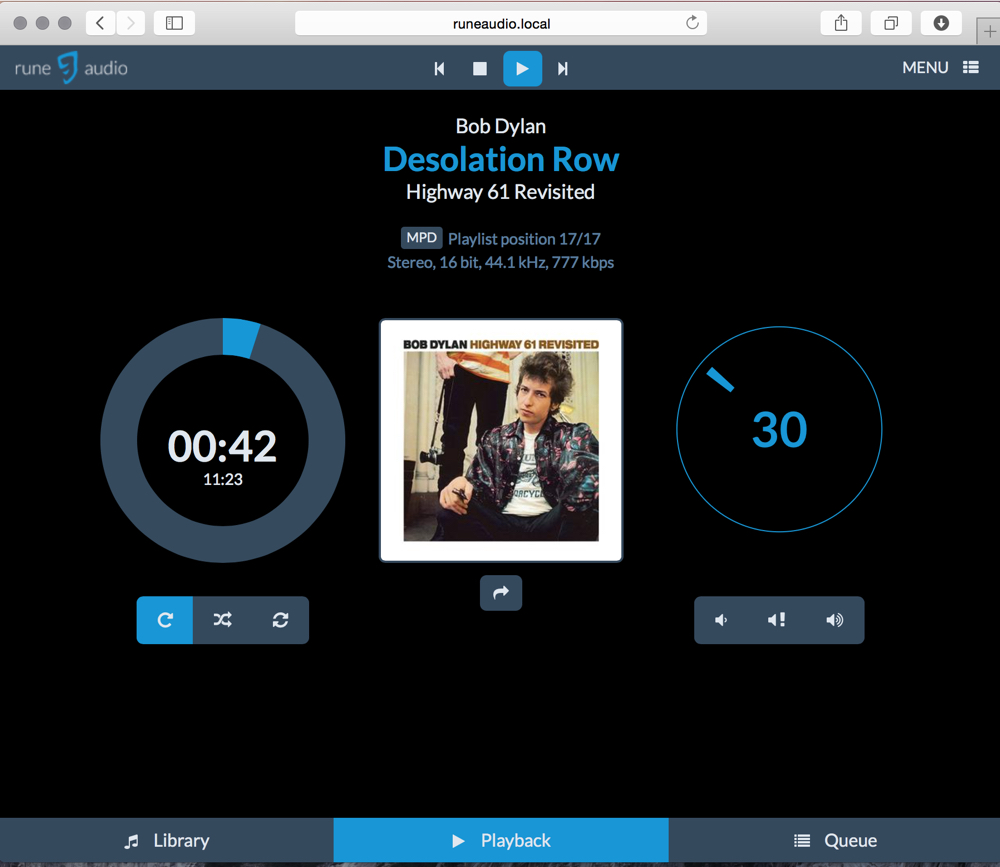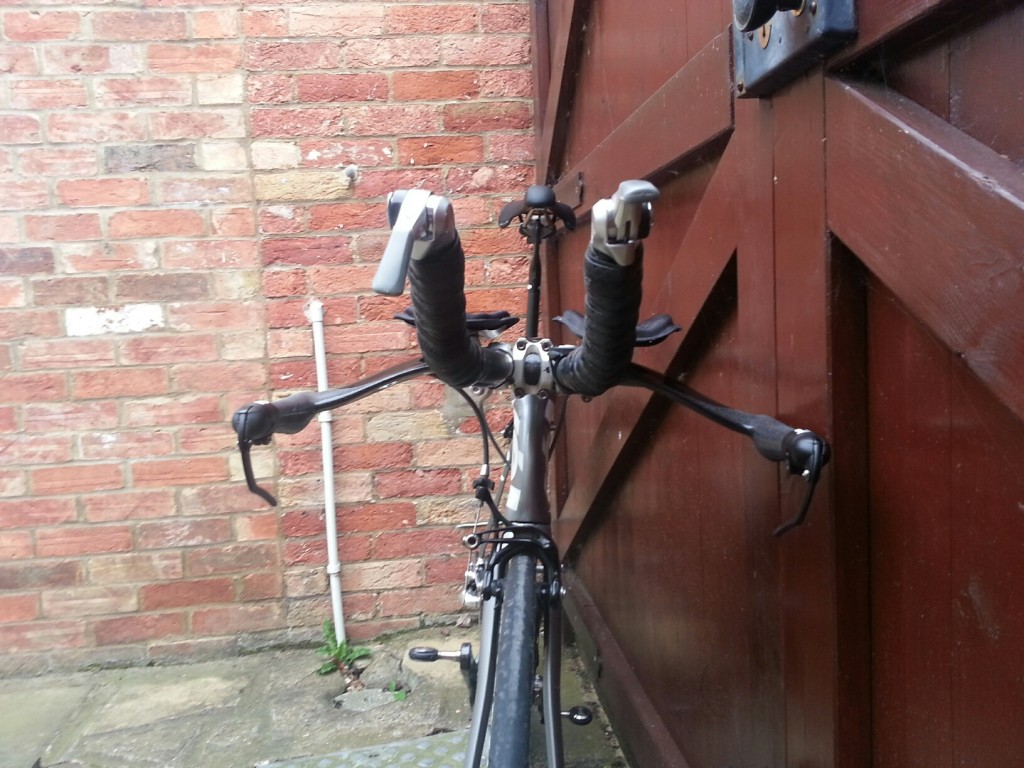The first club event for 2015 came around all of a sudden (for some reason, the New Year’s Day ’10’ formally belongs to the previous year’s calendar). It was to be held over at the Stony course, which in the version used by our club is at about 11.4 miles. It’s a tough course, and not one I enjoy, with a lot of climbing in the first half, and as usual, the winter, though mild, has seen further potholes open up, particularly between Beachampton and Nash.Unfortunately, I chose to ride with my deepest section front wheel - a Hed Stinger 90. I say unfortunately because by the time we got out to Stony Stratford, the wind had picked up considerably. The wind also made it feel quite chilly, though actually it was well above freezing. By the time I’d lined up at the start, my thigh muscles were shivering vigorously! Also by the time we were starting, several TeamMK club run groups were coming by, of which more later.Immediately I started, I realised I was going to have problems controlling the bike, at least on the outbound leg. The strong wind was throwing my bike all over the road. As it turned out, I had to keep off the tribars pretty much all the way to the turn. I came up behind the TeamMK club run a bit before Beachampton. Despite a Landrover being held up behind them, they didn’t delay me more than a few seconds. Unfortunately that doesn’t represent much of an excuse! Once out of Beachampton, it was a case of dodging many potholes, whiel gradually reeling in my minute man.I reached the turn after what seemed like an eternity of wrestling with the bike and fighting the headwind. But once round the turn, things were a fair bit different, and I found the going pretty good. There were one or two hairy moments when the wind gusted through gaps in the hedge, but really it was pretty much OK. Well, apart from the moment it felt as though the bike and I got lifted bodily off the tarmac for an instant.Shortly after passing through Beachampton, Jason G. came storming past like an express train, catching me for three minutes. He looks pretty fit, and has already ridden a few event. Gossip has it he’ll be focussing on time trials this year, so we should see some good times from him.Apart from a hairy moment with traffic, that was pretty much it. I finished in a lacklustre 29:42, though frankly I was pleased to just get under 30 minutes! Before the start, I said I was keen to find out if I’d recovered from the hideous cold that derailed my training in February. I have to say that I’m none the wiser given the conditions this morning. Still, at least it blew the cobwebs out of my system before next week’s Port Talbot Wh 2-up ’25’ in South Wales.Equipment note: I rode with a pair of these sunglasses, complete with reading lens bifocals. These were recommended by Tony P. after the NYD ’10’. I think both Tony and I suffer from age-related problems reading bike computers, and these sort that out quite nicely.Results
| Pos | No | Name | Club | Time | Cat | Vets Std | .+ / - | Vets Std |
| Result of the Medium Gear Event | | | | | | |
| | | | | | | | |
| 1 | 1 | John Buchanan | Corley Cycles | 32.17 | V44 | 30.02 | .- 2.15 | 1 |
| | | | | | | | |
| Result of the Un-restricted Gear Event | | | | | |
| | | | | | | | |
| 1 | 5 | Jason Gurney | Arbis/ Colbert Cycles | 26.32 | V45 | 30.07 | .+ 3.35 | 1 |
| 2 | 11 | Richard Wood | Arbis/ Colbert Cycles | 27.31 | S | | | |
| 3 | 8 | Mark Ellis | TeamMK | 28.16 | V50 | 30.33 | .+ 2.17 | 2 |
| 4 | 15 | Rob Fletcher | Arbis/ Colbert Cycles | 28.30 | V44 | 30.02 | .+ 1.32 | 3 |
| 5 | 14 | Steve Torley | TeamMK | 28.31 | S | | | |
| 6 | 12 | James Fox | CC Luton | 28.56 | S | | | |
| 7 | 10 | Matt Wootton | TeamMK | 29.16 | S | | | |
| 8 | 2 | Robert Saunders | NBRC | 29.42 | V55 | 31.00 | .+ 1.18 | 4 |
| 9 | 7 | Jason Lee | TeamMK | 30.17 | V45 | 30.07 | .- 0.10 | 5 |
| 10 | 6 | Andy Wickham | NBRC | 30.20 | V44 | 30.02 | .- 0.18 | 6 |
| 11 | 4 | Chris Mason | A5 Rangers | 30.57 | V41 | 29.45 | .- 1.12 | 7 |
| 12 | 3 | Ant Smith | TeamMK | 31.51 | S | | | |
| 13 | 9 | Wayne Thomas | NBRC | 34.18 | V63 | 31.57 | .- 2.21 | 8 |
| 14 | 13 | Neill Boddington | NBRC | 34.56 | V40 | 29.39 | .- 5.17 | 9 |
| 15 | 16 | Mike Fitsell | TeamMK | 38.01 | V52 | 30.33 | .- 7.28 | 10 |
| | | | | | | | |
| Time Keepers:- Steph Cousins & Tony Farmborough NBRC |
| Pusher Off:- Bryan Scarborough NBRC |

